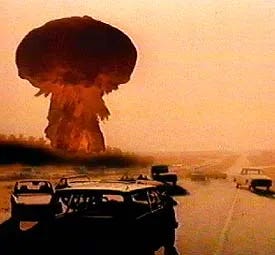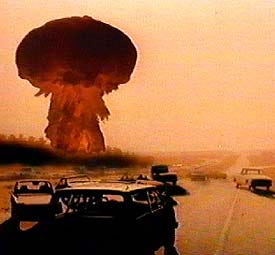Moscow raises nuke tensions, adjusts policy - Is it worth it?
This in the wake of long range missile attacks from Ukraine with "western-made" weapons
In our previous post we argued that the Biden administration’s authorization of long range strikes from the Ukraine into Russia, with “western-made” missiles was not only a mistake, but an act of shortsighted ego driven policy. (At least that’s what it looks like to us.) In the wake of Trump’s win, and with it the assumption that Ukraine and Russia woul…
Keep reading with a 7-day free trial
Subscribe to Against Crony Capitalism to keep reading this post and get 7 days of free access to the full post archives.




